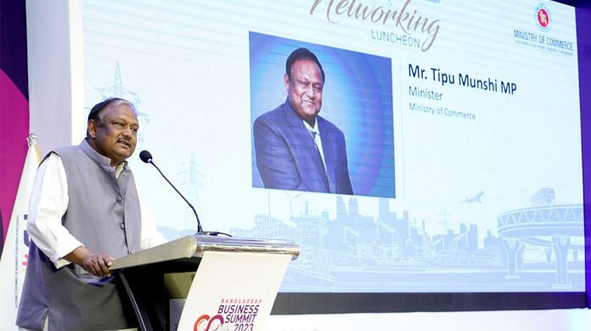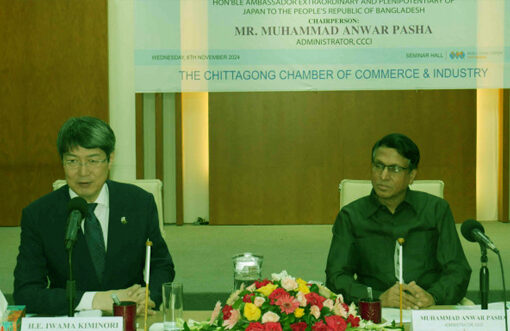Foreign manpower at mid-level in the RMG sector is not required anymore: Tipu

Commerce Minister Tipu Munshi said that there is enough manpower at the mid-level in the RMG sector from the country and thus foreign manpower at the mid-level in the RMG sector is not required anymore.
“Necessary skilled managers have been created in the country at the mid-level in the RMG sector while they are also doing fine in their work. Although we’ve been performing such tasks through foreign manpower for a long, now enough manpower has been created in the country. So, there is no need to bank on foreign managers anymore,” he said.
The Commerce Minister said this while addressing as chief guest the orientation and certificate award ceremony of the BUFT-EPB PGD Programme for Mid-Level Management to create skilled managers in the RMG sector organized by the BGMEA University of Fashion and Technology (BUFT) in association with the Ministry of Commerce held in Turag.
The Export Promotion Bureau (EPB) in collaboration with BUFT has launched diploma courses for mid-level managers and employees of garment factories to develop their professional skills. Tipu said that the BUFT has been working to create skilled manpower in this sector.
Mentioning that skilled manpower is the main driving force for the industry, Tipu said that the aim of the government is to minimize dependency on foreign manpower in the RMG sector.
He said that the homegrown manpower would meet the local demand and have to play an essential role in the industries.
The Commerce Minister cited that the RMG sector of Bangladesh has been able to make its position in the 2nd slot of the global RMG industry despite braving various adversities.
Currently, around 82% of the country’s export receipts come from the RMG sector, he added.
BGMEA President Faruque Hassan said skills development including reskilling and upskilling were imperative to sustain the industry’s competitiveness in the era of the fourth industrial revolution (4IR).
“Rapid technological advances led to a rise in demand for the workers and professionals who were skilled enough to operate advanced machinery and conduct complex and sophisticated production processes,” he said.
While automation in the industry will pose new challenges, Faruque said it will also increase productivity and competitiveness. “We need to reap the benefits of industry 4.0 through skills development,”
Faruque said, “As we’re preparing for the next growth phase, we have to enhance our business capabilities using the latest technologies that make production more efficient and faster.”
He said though there was a perception that automation would result in the loss of many jobs, new jobs would emerge through the adoption of technologies.
“What we need is market-oriented skills training to turn challenges into opportunities,” the BGMEA President added.





Comment here